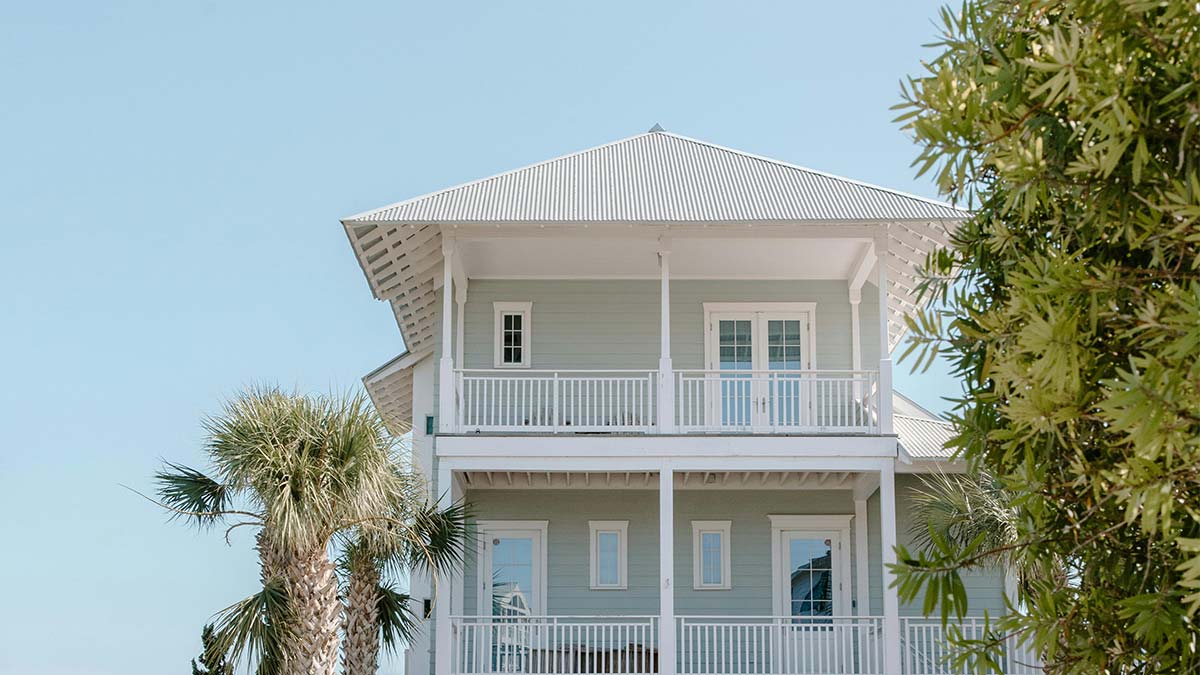Thinking about selling your second home? Before you do, there’s one thing you need to know, capital gains taxes can take a big bite out of your profit. But the good news? There are ways to shrink that tax bill or skip it altogether.
At iBuyer.com, we make selling simple. You can skip the listings, showings, and last-minute cleanups. We’ll give you a fair, data-backed cash offer, and you pick the close date.
Instant Valuation, Confidential Deals with a Certified iBuyer.com Specialist.
Sell Smart, Sell Fast, Get Sold. No Obligations.
Second Home
- Capital Gains on a Second Home, Explained Simply
- How to Calculate Your Capital Gains Tax on a Second Home
- Tax Differences Between Selling a Second Home and a Primary Residence
- Ways to Reduce the Tax Burden When Selling a Second Home
- Estate Planning and Second Homes: What You Should Know
- Reilly’s Two Cents
- Planning Ahead
- Frequently Asked Questions
Capital Gains on a Second Home, Explained Simply
When you sell a second home, like a vacation house, rental property, or weekend getaway, you might owe capital gains tax if the home increased in value. That’s because the IRS treats real estate as a “capital asset,” and any profit from selling it is considered a capital gain.
Here’s how it works: subtract what you paid for the home (plus some eligible costs like closing fees or major improvements) from the sale price. If the result is a positive number, that’s your gain, and it may be taxed.
Now, there are two kinds of capital gains:
- Short-term capital gains apply if you owned the home for one year or less. These are taxed at your ordinary income tax rate, which can be pretty high, up to 37 %.
- Long-term capital gains apply if you owned the home for more than a year. These gains are taxed at lower rates: 0 %, 15 %, or 20 %, depending on your income.
The key difference with a second home? Unlike your primary residence, you don’t get the tax exclusion of up to $250,000 (or $500,000 if married filing jointly). That means the full gain might be subject to capital gains tax, increasing your overall tax burden.
Even if you didn’t make rental income or didn’t use the home often, the IRS still sees it as a second home, and the tax rules are stricter.
How to Calculate Your Capital Gains Tax on a Second Home
Calculating your capital gains starts with a simple formula:
Sale Price – Adjusted Cost Basis = Capital Gain
Let’s break that down. Your sale price is what you sold the home for, minus things like real estate commissions or closing costs. Your cost basis is what you originally paid for the home, plus certain expenses that added value, like a new roof, kitchen remodel, or room addition.
Say you bought a vacation home for $200,000, spent $30,000 on upgrades, and sold it for $350,000. Your adjusted cost basis is $230,000. That makes your gain $120,000.
Next comes the tax part. If you owned the home for over a year, your gain is taxed at the long-term capital gains rate, usually 15 % for most people. If you owned it a year or less, that gain gets taxed as ordinary income, which could be much higher depending on your income bracket.
Also keep in mind: if your home was a rental property, depreciation you claimed over the years can be “recaptured” and taxed separately. And in some states, you may owe state capital gains taxes too.
Bottom line? Know your numbers. A small mistake in the math can mean paying more than you need to.
Tax Differences Between Selling a Second Home and a Primary Residence
One of the biggest shocks for sellers? Learning that second homes don’t get the same tax break as your main home. If you sell your primary residence, the IRS often lets you exclude up to $250,000 in profit from taxes, or $500,000 if you’re married and filing jointly. But that rule doesn’t apply to second homes.
To qualify for the exclusion, you must have:
- Owned the home for at least two years, and
- Lived in it as your main home for two of the last five years before selling.
That means if your second home was mostly a vacation spot or rental, you probably won’t qualify for this exemption.
Investment properties are treated even more strictly. Any profit is fully taxed, and if you claimed rental deductions like depreciation, you may owe depreciation recapture taxes too. These are taxed at a flat 25 % rate.
It’s also worth noting how your filing status affects the outcome. Married couples who file jointly can unlock a higher exemption, but again, only if the home was their primary residence.
For second homes, nearly all the gain is subject to capital gains tax, unless you take specific steps (which we’ll get into next) to reduce what you owe.
Ways to Reduce the Tax Burden When Selling a Second Home
You might not get the same tax break as with a primary home, but there are still smart ways to shrink your capital gains tax bill.
1. Convert it to your primary residence.
If you move into your second home and make it your main residence for at least two years, you might qualify for the primary residence exclusion. You’ll need to meet the “2 out of 5 years” rule, but this takes planning.
2. Use a 1031 exchange.
If the second home is an investment property, a 1031 exchange lets you defer capital gains by reinvesting the profit into another similar property. Just note: the rules are strict, and timing matters. It won’t work if the home was only a personal getaway.
3. Adjust your cost basis.
Keep records of any major upgrades, new HVAC, roofing, kitchen remodels. These can raise your cost basis and lower your taxable gain.
4. Watch your income level.
Long-term capital gains rates are tied to income. If you’re near a tax bracket cutoff, talk to a pro about timing the sale so your gain is taxed at 0 % or 15 % instead of 20 %.
5. Offset gains with losses.
Sold other investments at a loss this year? You might be able to use those losses to offset the gain from your home sale. This is called tax-loss harvesting.
Each strategy has rules and exceptions, so talk to a tax professional to make sure you’re following IRS guidelines. But done right, these moves can keep thousands more in your pocket.
Estate Planning and Second Homes: What You Should Know
Second homes aren’t just vacation spots, they’re also valuable assets, and how you handle them in your estate plan can make a big difference.
If you pass the home to heirs, they get what’s called a step-up in basis. That means the home’s value resets to its fair market value at the time of your death. If your kids sell it right away, they may owe little or no capital gains tax. This can be a smart way to pass on property with big appreciation.
Gifting the home before you pass? Be careful. If you give the home while you’re alive, your original purchase price becomes their cost basis, which can lead to a big tax bill later if the home’s value has gone up a lot.
You’ll also want to think about probate. Property that goes through probate can be delayed and costly. Many homeowners set up a revocable living trust so the home can transfer smoothly without going through court.
And if you have multiple heirs? Spell out who gets the home, or the proceeds from selling it, to avoid family disputes down the road.
Planning ahead helps protect your home’s value and keeps your loved ones from getting stuck with a surprise tax bill or legal headache.
Reilly’s Two Cents
I’ve worked with plenty of folks trying to sell their second homes, and let me tell you, the tax piece catches more people off guard than anything else. Even smart homeowners assume they’ll get the same tax breaks they got on their first house. Not true.
If you’re thinking about selling, here are a few tips I always share:
Don’t wait until tax time to figure this out.
Talk to a tax pro early, before you list the home. Knowing what you’ll owe can help you time the sale right or even hold off if another year of ownership would change your tax rate.
Track every dollar you’ve put into the home.
Upgrades, repairs, landscaping, keep those receipts. They don’t just make the home more appealing to buyers; they could also raise your cost basis and lower the tax you owe.
Think big picture.
If you’re downsizing, moving closer to family, or adjusting your retirement plan, look at how the home sale fits into your full financial picture. Sometimes a smaller gain with less tax is better than a big windfall that gets eaten up by the IRS.
Selling a second home isn’t always simple, but with good prep and smart timing, it doesn’t have to be painful.
Planning Ahead
Selling a second home doesn’t just mean handing over the keys, you’ve got to deal with the tax side too. And those capital gains can be steep if you’re not prepared. The key is planning ahead: understand how your gain is calculated, what rules apply, and what options you have to reduce your tax bill.
Whether you’re ready to sell now or just looking ahead, it’s smart to get your numbers straight early. The fewer surprises, the more money you get to keep.
Thinking about selling but unsure what your second home is worth? We can help. Get your cash offer today from iBuyer.com and skip the guesswork, the showings, and the stress.
Compare Cash Offers from Top Home Buyers. Delivered by Your Local iBuyer Certified Specialist.
One Expert, Multiple Offers, No Obligation.
Frequently Asked Questions
To qualify for the primary residence exclusion, you need to live in the home for at least 2 out of the last 5 years before selling. This rule doesn’t apply to second homes unless you convert it to your main residence.
Only if the home was used as an investment property, not just personal use. You’ll also need to meet strict timing and property type rules. A 1031 exchange lets you defer capital gains by reinvesting in a “like-kind” property.
Rental use can affect your tax deductions and trigger depreciation recapture taxes when you sell. But it may also make you eligible for a 1031 exchange if the property qualifies as an investment.
Inherited homes get a step-up in cost basis to current market value. That usually means little to no capital gains tax if your heirs sell right away. If they wait and the home appreciates, they may owe tax on that future gain.
Yes, in most cases. The federal government taxes capital gains, and many states do too. Rates vary by location, so check your state’s rules or talk to a tax professional.
Reilly Dzurick is a seasoned real estate agent at Get Land Florida, bringing over six years of industry experience to the vibrant Vero Beach market. She is known for her deep understanding of local real estate trends and her dedication to helping clients find their dream properties. Reilly’s journey in real estate is complemented by her academic background in Public Relations, Advertising, and Applied Communication from the University of North Florida. This unique combination of skills has enabled her to seamlessly blend traditional real estate practices with cutting-edge marketing strategies, ensuring her clients’ properties gain maximum visibility and sell quickly.
Reilly’s career began with a strong foundation in social media marketing and brand communications. These skills have proven invaluable in her real estate practice, allowing her to offer innovative marketing solutions that set her apart in the industry. Her exceptional ability to understand and meet clients’ needs has earned her a reputation for providing a smooth and satisfying transaction process. Reilly’s commitment to client satisfaction and her innovative approach have garnered her a loyal client base and numerous referrals, underscoring her success and dedication in the field.
Beyond her professional achievements, Reilly is passionate about the Vero Beach community. She enjoys helping newcomers discover the charm of this beautiful area and find their perfect home.
Outside of work, she loves exploring Florida’s stunning landscapes and spending quality time with her family. Reilly Dzurick’s combination of expertise, marketing savvy, and personal touch makes her a standout real estate agent in Vero Beach, Florida.




